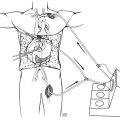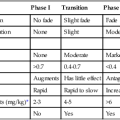The quest to extend the human healthspan has long been akin to the search for the fountain of youth. Nowadays, scientific advancements are transforming what was once a myth into a panorama of practical possibilities. As we delve deeper into understanding the mechanics of our body’s clock, the emergence of aging optimizers offers a glimmer of hope in the monumental task of decelerating the aging process. In this article, we explore the potential benefits of these innovative compounds and interventions that might be integral in crafting a lucid and vibrant chapter in the latter stages of life.
Exploring the Science Behind Aging Optimizers
The science of aging reveals that cellular decline is influenced by factors like DNA damage, telomere shortening, and metabolic dysfunction. Researchers are exploring how these processes can be mitigated, and NMN, a compound that boosts NAD+ levels involved in energy metabolism and DNA repair, has shown potential in animal studies to slow aging.
Rather than a single solution, a combination of aging optimizers and lifestyle changes may offer the best results. With ongoing research into proper dosages and combinations, the goal is to create personalized interventions that target aging with greater precision, marking a new era in personalized medicine.
Boosting Cognitive Function with Age Defense Compounds
Cognitive decline is a common concern with aging, but age-defense compounds like antioxidants and anti-inflammatory agents can help mitigate this. Cognitive enhancers like nootropics and neurotropic substances support brain function by optimizing neuroplasticity and neurotransmitter levels. Controlled trials are crucial to determine their potential.
The relationship between brain health and systemic health, including cardiovascular health, blood sugar levels, and gut microbiota, emphasizes the importance of holistic approaches. Age-defense compounds, combined with physical exercise, mental stimulation, and balanced nutrition, could provide a strong defense against cognitive decline. As evidence solidifies, cognitive longevity is becoming an achievable goal for many.
Enhancing Longevity and Well-being Through Dietary Interventions
The concept of “you are what you eat” is increasingly important in anti-aging research, as dietary interventions have been linked to extending lifespan and healthspan. Caloric restriction, intermittent fasting, and specialized diets have been shown to extend organisms’ lifespans by reducing metabolic rate and oxidative stress. These strategies complement the search for longevity-promoting supplements found in everyday foods.
Antioxidant-rich foods, high-fiber content, and those with high Omega-3 fatty acids are beneficial for aging individuals, helping to mitigate chronic inflammation and support cardiovascular health. Personalized nutrition is increasingly important, as genetic variability, lifestyle factors, and existing health statuses can influence the effectiveness of diet-based interventions. Working with healthcare providers, individuals can tailor their nutrition to optimize their personal aging trajectory.
The Interplay of Genetics and Lifestyle in Slowing Down the Aging Process
The debate over whether nature or nurture influences our lifespan is ongoing. The consensus suggests a complex interplay between genetics and lifestyle choices, with genetic predispositions setting the baseline for our body’s aging process. Lifestyle factors like regular physical activity, sleep, stress management, and abstinence from harmful habits can influence the aging process. These factors can be considered a form of preventive medicine against premature aging.
Genetic testing can reveal individual susceptibilities to age-related conditions, allowing for targeted interventions. Lifestyle choices remain powerful factors that individuals can control. Integrating regular assessments with genetic consultations can help tailor habits for a healthier, potentially longer life.
Emerging Trends in Anti-Aging Research and Their Potential Impacts
Anti-aging research is constantly evolving, with new trends affecting public health. Advances in advanced glycation end products, telomerase activation, and senolytic drugs are leading to improved late-life health. Technological innovations like AI and machine learning are helping scientists identify biomarkers and therapeutic targets. Integrating big data analytics into gerontology could accelerate discovery and create precision anti-aging therapies.
A systemic approach considers all factors contributing to aging, fostering comprehensive strategies. Stem cell research, gene therapy, and tissue engineering are innovative solutions for combating age-related decline. Fostering a regulatory environment that encourages safe and ethical research and expedites the translation of treatments to clinical application is a critical challenge for the future of anti-aging initiatives.
Overall, the intricacies of aging demand enduring scientific curiosity and proactive lifestyle adjustments. While the dream of halting the aging clock remains elusive, the strategies discussed herein embody an array of ammunitions in the modern anti-aging arsenal. From dietary shifts to advanced clinical interventions, these trends are shaping a future in which aging may be but a manageable aspect of a well-lived life.




